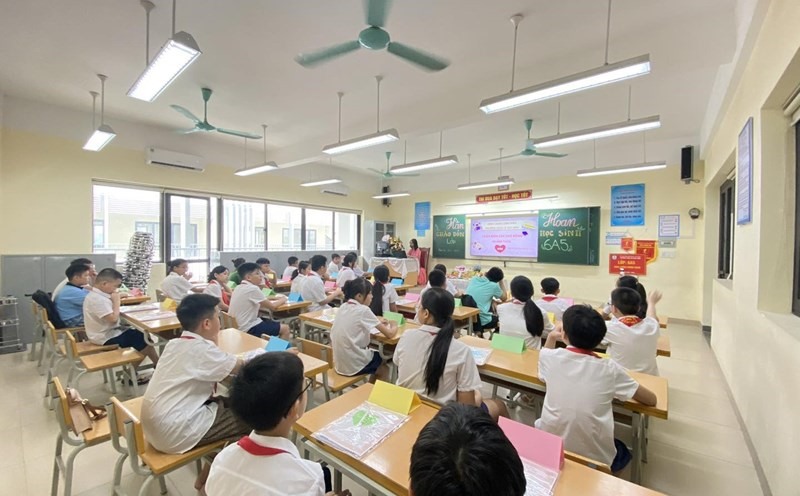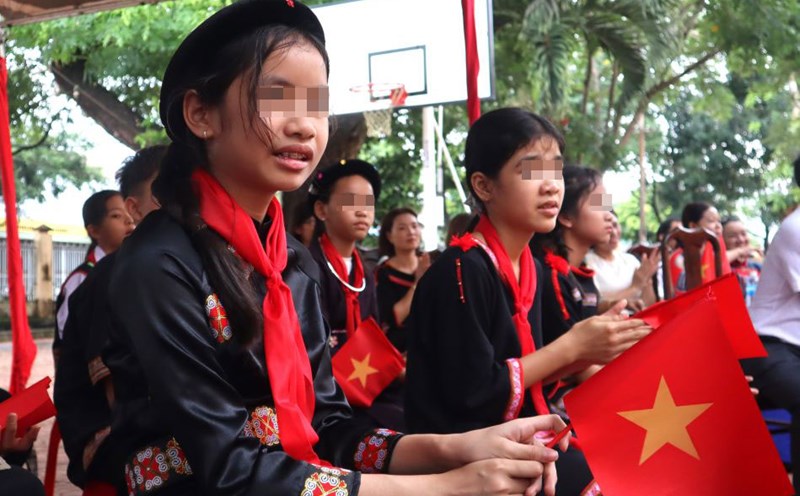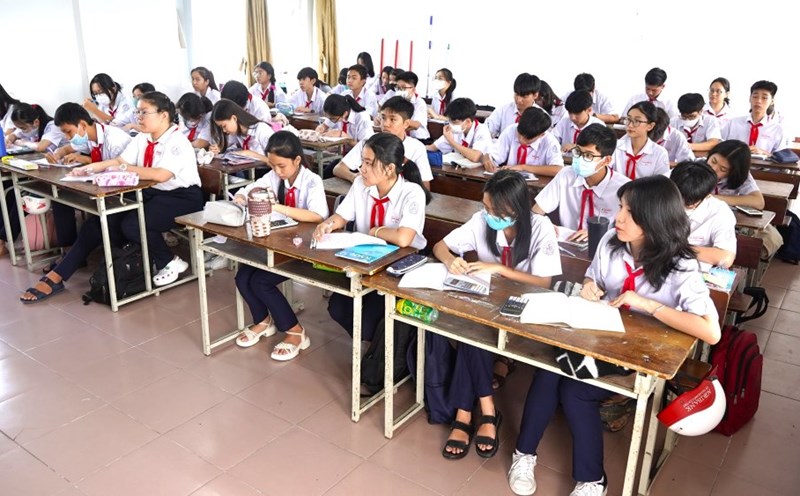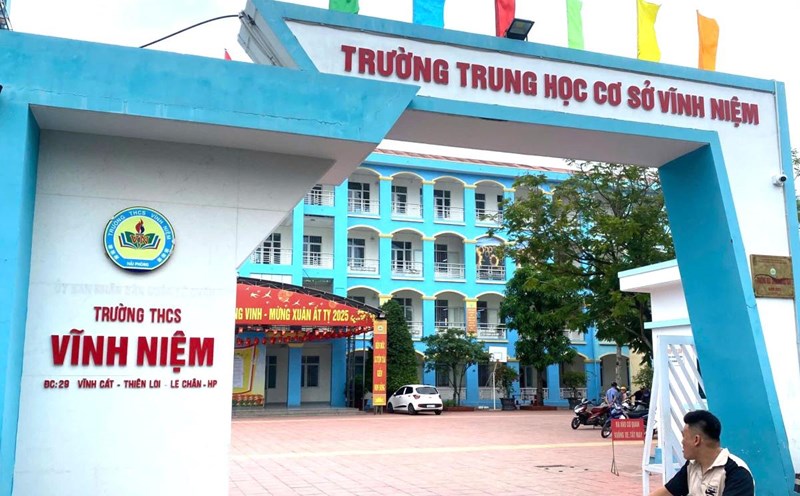New school year, old worries
The 2025-2026 school year is the first school year that the tuition exemption policy for all high school students nationwide has been implemented. This is a humane policy, demonstrating the concern of the Party and State for the education and training sector.
However, in reality, schools still have "voluntary" fees, causing parents to worry.

For example, in Hai Phong, Vinh Niem Secondary School (An Bien Ward) has just received information reflecting that the school has collected money from parents to buy some equipment for classes.
The school said that currently, the school has not held a parent meeting at the beginning of the 2025 - 2026 school year. In all meetings, the Board of Directors has clearly instructed teachers about not mobilizing parents to contribute to purchasing classroom equipment, not causing trouble, harassment or waste for parents. The school has handed over classrooms and facilities for teaching and learning to teachers and students of all classes from August 19, 2025.
The Board of Directors worked with homeroom teachers and related parents, and directed the immediate suspension of advertising and shopping. At the same time, the parents were required to return the money they had received. Homeroom teachers are responsible for instructing parents on strict compliance with regulations on funding for education.
In Hanoi, Ms. Ngoc Anh - a parent with a child in primary and secondary school - also shared that although she is exempted from tuition fees, there are many contributions at the beginning of the school year such as tuition fees, class fund, cleaning fees, club membership fees, childcare fees after class... The total cost is about 2 - 3 million VND/student.
Most of the fees are "voluntary" but parents have broken the bank. I do not object to the fees if they are truly necessary and clear. I hope schools need to seriously implement regulations on collection/spending activities" - Ms. Ngoc Anh expressed.
Preventing overcharging at the beginning of the year
Right from the beginning of the 2025 - 2026 school year, many localities require schools to seriously implement the fees collected at the beginning of the year to avoid overcharging.
Most recently, Mr. Nguyen Trong Hoan - Chief of Office of Nghe An Department of Education and Training - said that the department has just sent a document requesting the Chairmen of the People's Committees of communes and wards to not approve the plan to mobilize funding for educational institutions in the management area for the 2025 - 2026 school year.
Accordingly, the Department requires educational institutions not to be allowed to arbitrarily mobilize, collect, or implement sponsorships and contributions in any form.
The Hai Phong Department of Education and Training also requires absolutely not to let "overcharging" occur at the beginning of the school year; all fees must have a legal basis, clearly publicized in terms of list, fees, subjects, time and method of collection; do not set fees outside regulations, do not combine many fees, do not collect many fees in advance.
In particular, the Department of Education and Training emphasizes that the head of the unit is fully responsible for the revenues and expenditures at the unit; is responsible for explaining to learners, parents, state and social management agencies about each revenue and revenue level. In case of overcharging or illegal collection and expenditure, the head must be responsible before competent authorities and before the law.
From the 2025 - 2026 school year, tuition and tuition fees are two fees that schools are not allowed to collect from students.
In addition, according to Circular 55 2011 of the Ministry of Education and Training on the activities of the Parents' Representative Board, schools and representative boards are not allowed to collect the following 10 fees:
- Collections that do not guarantee voluntariness.
- Money for protecting facilities and security.
- Cost of parking students' vehicles.
- classroom and school midwives.
- Compensation for cadres, teachers, and employees.
- Funding for purchasing equipment, machinery, and teaching materials for schools.
- Supporting management and teaching organization.
- Repairing, upgrading, and constructing school buildings.
- Contributes to spend on activities not directly serving students.
- Any other collection contrary to the provisions of law.









